Current Position: History>>2009
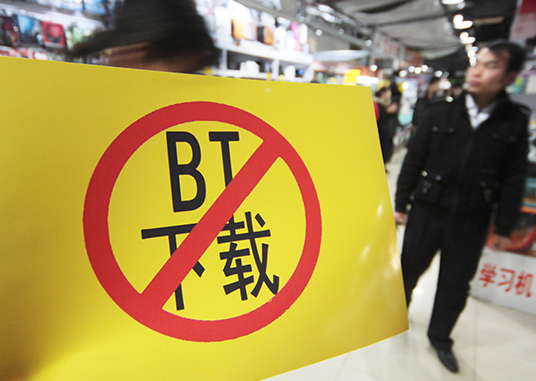
Annual Review
After the "hibernation", the year of 2009 brought the spring to the Internet industry. In this year, Tencent overtook eBay and Yahoo! to become the second biggest Internet company in terms of market value, next only to Google and Amazon. Chinese Internet companies' global influence started to grow. By the end of 2009, China had boasted 384 million netizens, and the number is continuing to grow.In 2009, the concept of Web 2.0 gradually faded out as SNS websites emerged one after another. With the rise of SNS websites, "vegetable stealing" made an unprecedented Internet sensation and "Your mom is calling you home for dinner" became a symbol of the ending. It also triggered a nationwide entertainment-for-all campaign. Suddenly, people of all ages were "stealing vegetables" online, and "杯具" (tragedy), "草泥马" (the F-word), "围脖" (Weibo), and "不要迷恋哥" (Do not have a crush on me) became popular on the Internet, and the whole Internet industry displayed a strong momentum for growth.
As the whole country went crazy about cyber entertainment, the lawsuit field by "kaixin001 " against "kaixin ", which belonged to the China InterActive Corp" added to the drama. The two websites shared the same name "kaixin", provided the same vegetable-stealing and parking games and had even nearly identical domain names. Would the lawsuit put the heating SNS competition in order or throw cold water on SNS participants?
Of course, SNS websites were not the only thing that grew in the "springtime". Ding Lei, founder and CEO of NetEase Inc., declared that he was planning to raise pigs. The move was enough to expand the imagination of venture capital and break the established mindset of the industry and existing industrial boundaries. But pig raising was not the most important. What's more important was that NetEase acquired the dealership of the World of Warcraft (WoW), which belonged to The9 Limited, which caught the eyes of five million WoW players. In addition, Shanda acquired Hurray!, and then Shanda Games was listed and bought www.ku6 , a video website. It seemed that the year of 2009 was not a peaceful year for online games. New rules were rolled out for virtual currency used in online games. The online game industry concerned the personal interests of a massive number of players, so the government would never take a laissez-faire attitude towards it as towards SNS websites.
In 2009, the Chinese Internet industry embarked on the right track and the government started to step into Internet regulation. The campaign to eliminate pornography and illegal publications throughout the year helped create a healthy, orderly cultural environment. Measures to purify social morals were taken in good order, porn information and pirated products on the Internet were decreasing, and cyber infringements were cracked down upon. Several related documents were released, including the Notice on Default Installation of Green Filter Software for Internet Surfing on Computers, the Notice on Strengthening and Improving Content Review of Cyber Music, the Stipulation on Job Responsibilities, Internal Organs and Staffing, and the Law of the People's Republic of China on Tort Liability. All these efforts have cleared obstacles and consolidated the foundation for the future development of the Internet industry.
Of course, online public opinion was a force that should not be underestimated in 2009. A series of corruption acts such as "hide-and-seek game" (a young man was claimed to die in a hide-and-seek with inmates in the detention center), Deng Yujiao (a female hotel staff who stabbed two town government officials out of self-defense at work, causing one death), "Luxury Cigarettes" (a director of district housing management department in Nanjing was found smoking luxury cigarettes and wearing luxury watches after photos of him in a meeting were uploaded to the Internet), and "Entrapment" were exposed on the Internet and attracted extensive attention. The Internet made it easy for people to express their opinions online and thus enabled public opinion to play the role of watchdog. Meanwhile, communication modes of "points-to-one-point" and "points-to-points" were taking shape.
Key Events
-
2009The rise of SNS websites and "vegetable stealing" and
-
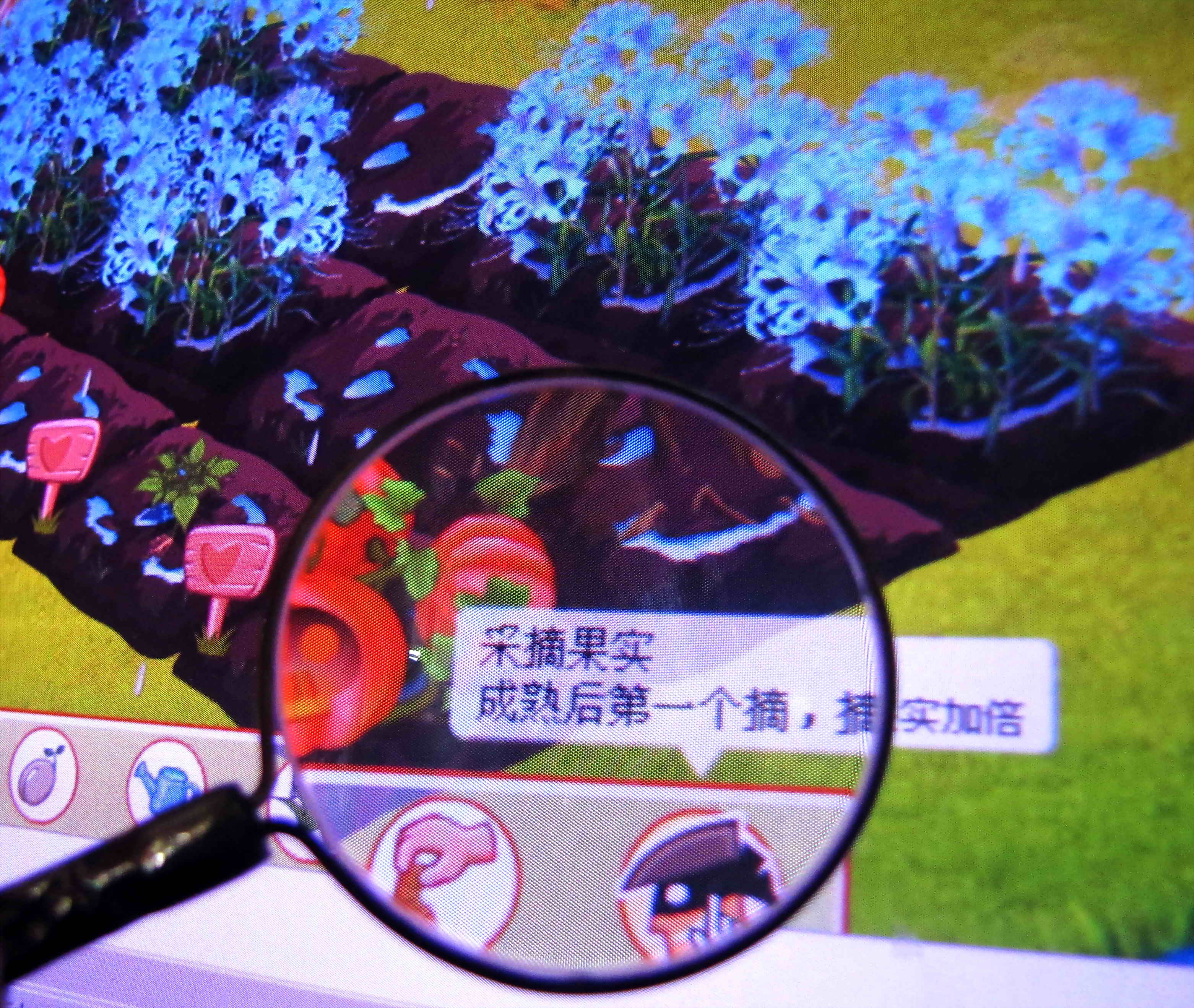 From May 2008, social networking service (SNS) websites including kaixin and xiaonei went viral among the netizens. In early 2009, Happy Farm was launched and then renamed as QQ Farm by Tencent, the amount of users increased with a geometric growth speed. Meanwhile, buzzwords like "Do not have crush on me" became more popular with the rise of SNS.
From May 2008, social networking service (SNS) websites including kaixin and xiaonei went viral among the netizens. In early 2009, Happy Farm was launched and then renamed as QQ Farm by Tencent, the amount of users increased with a geometric growth speed. Meanwhile, buzzwords like "Do not have crush on me" became more popular with the rise of SNS.
Speaking of 2009, we should never forget the "vegetable stealing" game, an online game which attracted many users of all age groups across the country. In that year, from teenagers to senior citizens were indulged in the excitement of "stealing vegetable" and sometimes there was some tragic news about doctors were too busy "stealing vegetable" to save the patient. All of a sudden, "Have you stolen vegetable today" became a buzzword and SNS applications also rose to fame overnight. After that, SNS games gradually grew into an industry.
Besides "vegetable stealing", another highlight was the coining of new buzzwords. Following "河蟹社会" (a homophonic phrase for "harmonious society") coined in 2008, netizens showed strong sense of humor and skepticism in creating new buzzwords, such as "杯具" (tragedy), "草泥马" (the F-word), "围脖" (Weibo), and "不要迷恋哥" (Do not have a crush on me). It's not sure whether their popularity was either attributed to the creativity or cyber hype. Anyway, they all showed that in today's society, people were more willing to express their opinions, so these buzzwords were coined and they witnessed the amazing power of Internet communication.
But after the craze for cyber games and entertainment passed, SNS websites started to seek for changes. At the end of 2009, they started to provide interaction between people, man and organizations as well as man and society, and tried to attract major organizations and celebrities to register accounts on them and pop stars and sports, business and academic celebrities to interact with their followers on them.
In 2009, "vegetable stealing" and "Do not have a crush on me" served only as a tipping point for SNS websites. What really changed people's lifestyle was their openness and the creativity of their users. SNS websites will surely be written heavily in the Internet history.
-
Jan.Seven ministries and commissions launched a nationwide campaign to eliminate vulgar Internet content
-
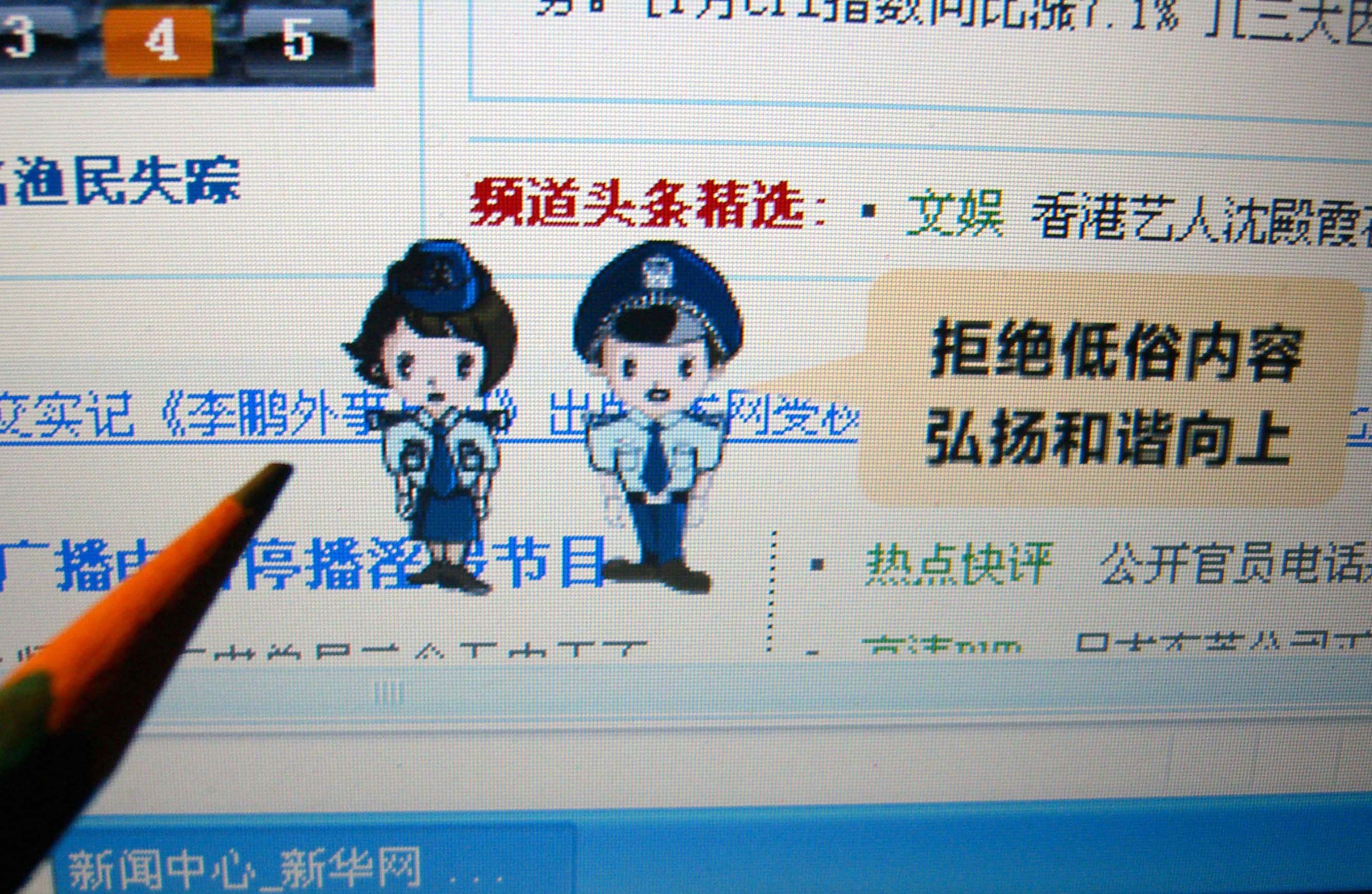 In January 2009, the State Council Information Office, Ministry of Industry and Information Technology, Ministry of Public Security, Ministry of Culture, State Administration for Industry & Commerce, State Administration of Radio, Film and Television and General Administration of Press and Publication jointly held a teleconference in Beijing to discuss the nationwide campaign to eliminate vulgar Internet content. In November, the Office of the Task Force to Eliminate Pornography and Illegal Publications issued the Emergency Notice on Cracking Down upon the Production and Dissemination of Pornographic Information on Mobile Web. In December, the International Communication Office of the Central Committee of Communist Party of China, Office of the Task Force to Eliminate Pornography and Illegal Publications, Ministry of Industry and Information Technology, Ministry of Public Security, Ministry of Culture, State-owned Assets Supervision and Administration Commission of the State Council, State Administration for Industry & Commerce, State Administration of Radio, Film and Television and General Administration of Press and Publication jointly launched a nationwide campaign to eliminate pornographic and other vulgar content found on Internet and mobile media.
In January 2009, the State Council Information Office, Ministry of Industry and Information Technology, Ministry of Public Security, Ministry of Culture, State Administration for Industry & Commerce, State Administration of Radio, Film and Television and General Administration of Press and Publication jointly held a teleconference in Beijing to discuss the nationwide campaign to eliminate vulgar Internet content. In November, the Office of the Task Force to Eliminate Pornography and Illegal Publications issued the Emergency Notice on Cracking Down upon the Production and Dissemination of Pornographic Information on Mobile Web. In December, the International Communication Office of the Central Committee of Communist Party of China, Office of the Task Force to Eliminate Pornography and Illegal Publications, Ministry of Industry and Information Technology, Ministry of Public Security, Ministry of Culture, State-owned Assets Supervision and Administration Commission of the State Council, State Administration for Industry & Commerce, State Administration of Radio, Film and Television and General Administration of Press and Publication jointly launched a nationwide campaign to eliminate pornographic and other vulgar content found on Internet and mobile media.
With the further development of Internet, more and more pornographic and vulgar information was found on the Internet which made it easy to spread and hard to control, specifically on websites, BBS, post bars, blogs and even search engines and smart terminals. Meanwhile, infringement and piracy became an increasingly prominent issue, and illegal publications, online games, and even textbooks were found and sold on video websites, online book stores, and e-commerce websites, with serious impacts on the growth of youth. In response, from the beginning to the end of 2009, a nationwide campaign to eliminate pornographic and illegal publications on the Internet was launched in three stages to create a healthy, orderly cultural environment and purify social morals.
In addition, in 2009, the state started to step up cyber regulation, issued documents including the Notice on Strengthening and Improving Content Review of Cyber Music, and The Interpretation of the State Commission Office of Public Sectors Reform of Provisions on Integrated Law Enforcement for Cartoons, Online Games and Cultural Market in the Stipulation Regarding Job Responsibilities, Internal Organs and Staffing of the Ministry of Culture, State Administration of Radio, Film and Television and General Administration of Press and Publication, imposed examination & approval and administration over units engaged in publication distribution on the Internet such as online book stores, specified the entry standards and regulated their business behaviors.
-
May.19DNS server collapsed as a result of the attack against DNSPod on May 19
-
From 21:00, May 19, 2009, the DNS of baofeng was attacked and broke down, and as a result, the recursive DNS servers of telecom operators were congested with a large number of exceptional requests, affecting services delivered to some Internet subscribers in six provinces of Jiangsu, Anhui, Guangxi, Hainan, Gansu and Zhejiang. At 1:20, May 20, Internet services of the affected areas were basically restored.
The trigger was that DNSPod, a small website providing the intelligent DSN resolution service for websites, was attacked and its six DNS resolution servers broke down. As a result, the DNS of multiple Internet service providers including Baofeng all collapsed and were congested, hindering a lot of users from accessing the Internet.
The event rang the alarm for Chinese Internet industry. With the rise of all sorts of Internet applications, Internet has come to be an indispensable part of people’s daily life, so once it breaks down, people's life and work will be paralyzed. Nowadays, neither governments, enterprises nor individuals could function without the Internet, so governments and related agencies should prepare for the rainy day legislatively and technologically, establish and improve the standard preventive and maintenance system and develop contingency measures against Internet paralysis.
-
May.19The Ministry of Industry and Information Technology issued the Notice on the Build-in Installation of Green Filter Software for Internet Surfing on Computers on May 19
-
 The Ministry of Industry and Information Technology issued the Notice on the Built-in Installation of Green Filter Software for Internet Surfing on Computers on May 19, which specified that: from July 1, 2009, all the computers produced and sold within the Chinese mainland should be installed with the Green Dam software before delivery; all the imported computers should be installed with the Green Dam software before their sale in the Chinese mainland. The Ministry of Industry and Information Technology paid RMB 41.7 million for the installation. The notice provoked heated discussions on the Internet. To some extent, the compulsory measure violates the consumers' right to choose.
The Ministry of Industry and Information Technology issued the Notice on the Built-in Installation of Green Filter Software for Internet Surfing on Computers on May 19, which specified that: from July 1, 2009, all the computers produced and sold within the Chinese mainland should be installed with the Green Dam software before delivery; all the imported computers should be installed with the Green Dam software before their sale in the Chinese mainland. The Ministry of Industry and Information Technology paid RMB 41.7 million for the installation. The notice provoked heated discussions on the Internet. To some extent, the compulsory measure violates the consumers' right to choose.
We should admit that the government meant well in making the decision, but it missed a few key points. For example, was the Green Dam safe? After the notice came out, foreign researchers made a preliminary test on the software and found that it "contains programming errors that might cause the computer to be attacked while surfing on the Internet." What's more, it's suspicious of plagiarism. And as far as its own functions were concerned, it's very weak in password protection and anti-unloading, so the compulsory installation of the Green Dam before it's safety was guaranteed was obviously a hasty decision. Besides, did the decision maker consider how the decision concerned the interests of the general public and fair competition in the market before releasing the notice? If not and the compulsory installation was just a hasty decision, it might cause negative impacts on the overall development of Chinese information industry.
So far we can be sure that China's information security industry is still immature, and decision makers should consider the maturity and technological competence of the industry while making any decision, and only by taking into account the interests of multiple parties can the decision truly benefit the whole Internet industry of the country.
-
Jun.The9 lost the dealership of World of Warcraft to NetEase in June
-
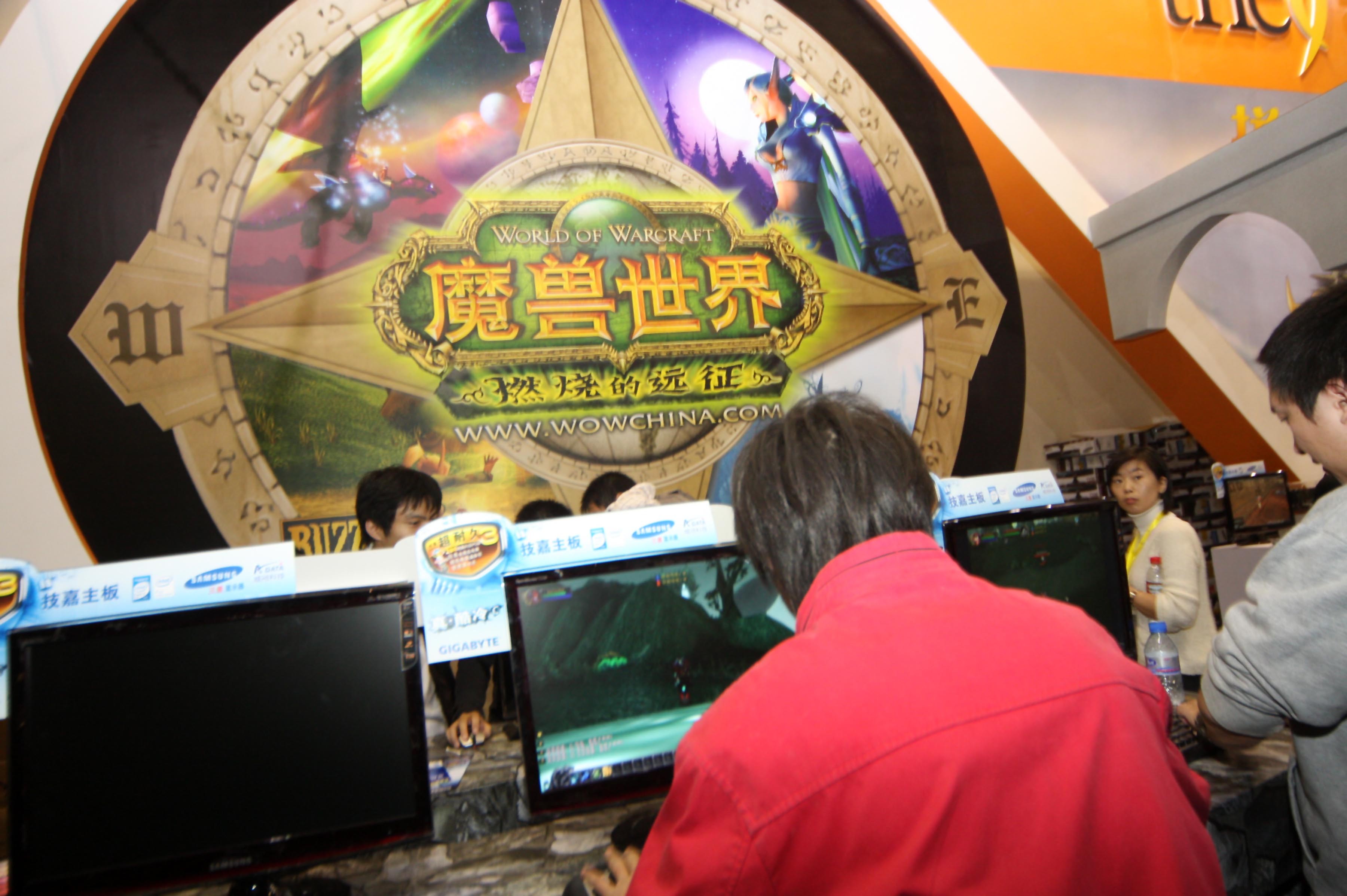 In early 2009 when the term for The9 as the operator of World of Warcraft (WoW) in China was due soon, on April 16, Blizzard sold the exclusive rights to WoW to a higher bidder, a company under NetEase for three years. In early June, the WoW server was closed as The9 and NetEase went through handover formalities.
In early 2009 when the term for The9 as the operator of World of Warcraft (WoW) in China was due soon, on April 16, Blizzard sold the exclusive rights to WoW to a higher bidder, a company under NetEase for three years. In early June, the WoW server was closed as The9 and NetEase went through handover formalities.
The five million players had mixed feelings about the handover as the server was closed, open and then closed again and they didn't know how it would affect their personal interests.
But the loss for The9 was obvious. In the past four years since 2004 when it became the exclusive operator of WoW in China, The9 had made hundreds of million of US dollars from and attracted tens of millions of users with the game which contributed nearly 90% of the company's revenue. Because of the loss of the dealership of the WoW, the company's revenue shrank by more than 90%.
Meanwhile, NetEase faced all sorts of difficulties in various links of examination and approval for the operation of the game. The complex interest relations between Blizzard, NetEase and The9 aside, this event rang the alarm for the game agent business mode adopted in China and exposed our weakness in online game research and development, which put Chinese companies in a helpless position in front of strong and demanding overseas Internet companies.
-
Jul.The Ministry of Health halted the use of electric shock to treat Internet addiction in July
-
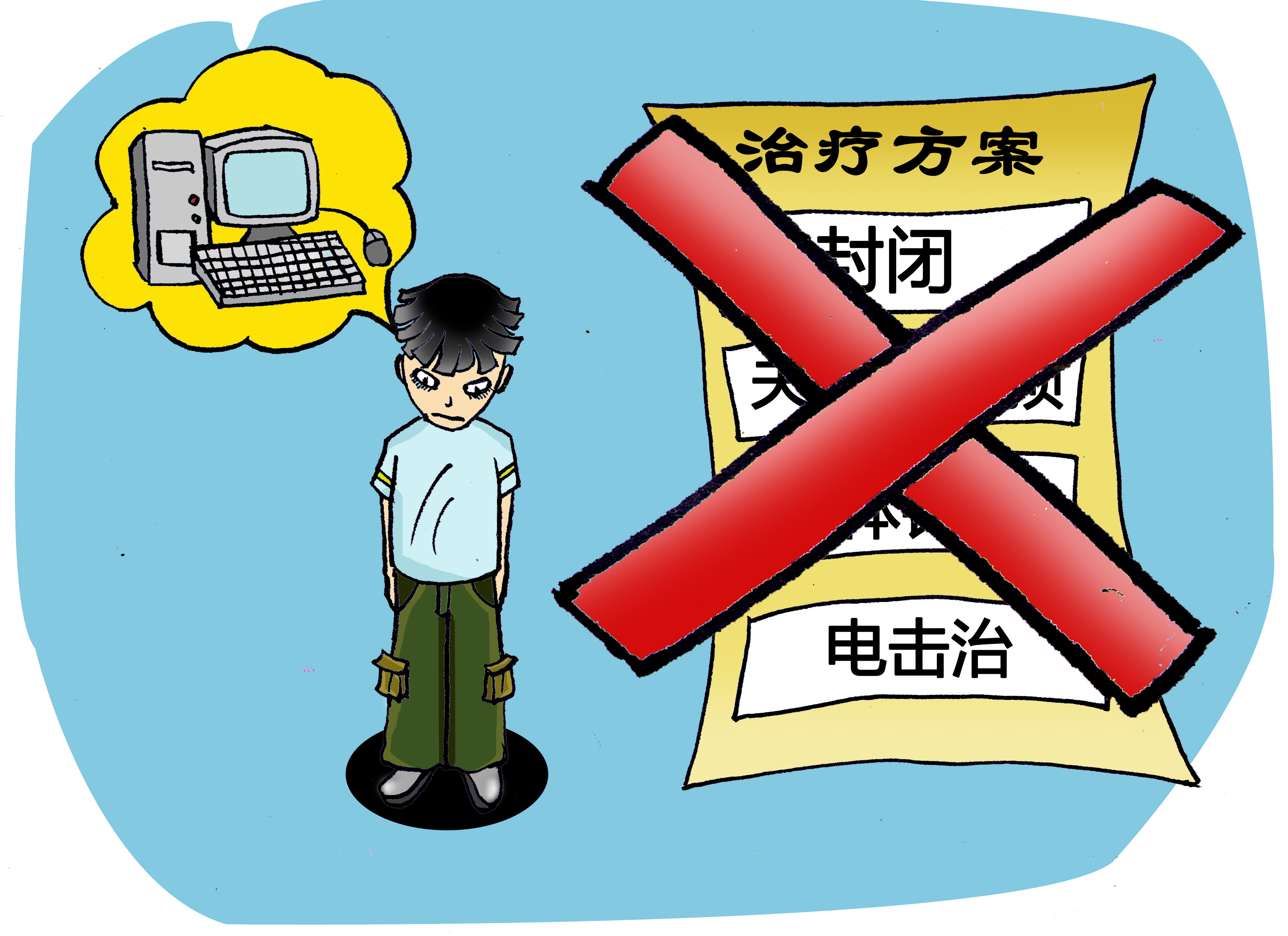 The method adopted by Yang Yongxin, an expert in treating Internet addiction, exposed on May 5, 2009, was highly controversial. The "xingnao" (brain-waking) treatment he invented in which 1-5mA electric current went through the brain via electrodes on the temples or fingers of teenagers with alleged Internet addiction. The seizure did hurt, but Yang claimed that it's very safe and would not hurt the patient in any way. On July 13, the Ministry of Health released the Notice on Prohibiting the Clinical Use of Electroconvulsive Therapy or Electroshock Therapy for Treating Internet Addiction, concluded that the electroconvulsive therapy was not fit for clinical treatment and demanded the halt of the practice of it across the country.
The method adopted by Yang Yongxin, an expert in treating Internet addiction, exposed on May 5, 2009, was highly controversial. The "xingnao" (brain-waking) treatment he invented in which 1-5mA electric current went through the brain via electrodes on the temples or fingers of teenagers with alleged Internet addiction. The seizure did hurt, but Yang claimed that it's very safe and would not hurt the patient in any way. On July 13, the Ministry of Health released the Notice on Prohibiting the Clinical Use of Electroconvulsive Therapy or Electroshock Therapy for Treating Internet Addiction, concluded that the electroconvulsive therapy was not fit for clinical treatment and demanded the halt of the practice of it across the country.
All of a sudden, Internet addiction treatment caught the attention of the whole society. For some parents, there's nothing wrong in using the electroconvulsive therapy to treat their children who were addicted to the Internet, became weary of studying, and joined gangsters and group fighting, stealing, robbing or cheating, with no other therapy for us, so they were confused by the decision of the Ministry of Health. But experts all agreed that it's not sure whether the electroconvulsive (electroshock) therapy was a safe, effective way to treat Internet addiction, and there is no related clinical research and evidence-based medicine, so it's not fit for clinical use for the time being. Two opposite viewpoints about one thing: Internet addiction. Internet addiction is an inevitable problem for children, households and even the whole society, and the problem with teenage education caused by it cannot be simply solved with a treatment alone. The state must reform the information technology education.
-
Jul.16The post "Jia Junpeng, your mom's calling you home for dinner" became an Internet hot post on July 16
-
 On July 16, 2009, a post thread under the headline "Jia Junpeng, your mom's calling you home for dinner" appeared on the World of Warcraft bar of Baidu Tieba, and attracted 390,617 views and 17,000 replies within only five to six hours, an "Internet miracle" as some netizens described it. And "Jia Junpeng, your mom's calling you home for dinner" soon became an Internet buzzword.
On July 16, 2009, a post thread under the headline "Jia Junpeng, your mom's calling you home for dinner" appeared on the World of Warcraft bar of Baidu Tieba, and attracted 390,617 views and 17,000 replies within only five to six hours, an "Internet miracle" as some netizens described it. And "Jia Junpeng, your mom's calling you home for dinner" soon became an Internet buzzword.
This event could be seen as a performance art on the Internet, or a sort of feast of the post bar. But it's more than that. On June 7, 2009, WoW which had operated in China for five years suspended its services, and its five million players had no game to play. This served as the background for the overnight popularity of the post. There were several explanations for it. First, after the suspension of WoW services, players felt empty and lonely. Second, the sentence implied the relationship between the mother, the son, and the son's friend, and reminded people of teenage education, Internet addiction and the game. Third, the post also reflected the competition between NetEase and The9 for the game.
In a word, the seemingly boring post which was followed by hundreds of thousands of netizens and gave birth to the huge "Jia Junpeng's family" showed how spiritually and culturally empty the netizens were and how eager they were to seek for pleasure on the Internet.
-
Dec.4The BTChina website was shut down on December 4
-
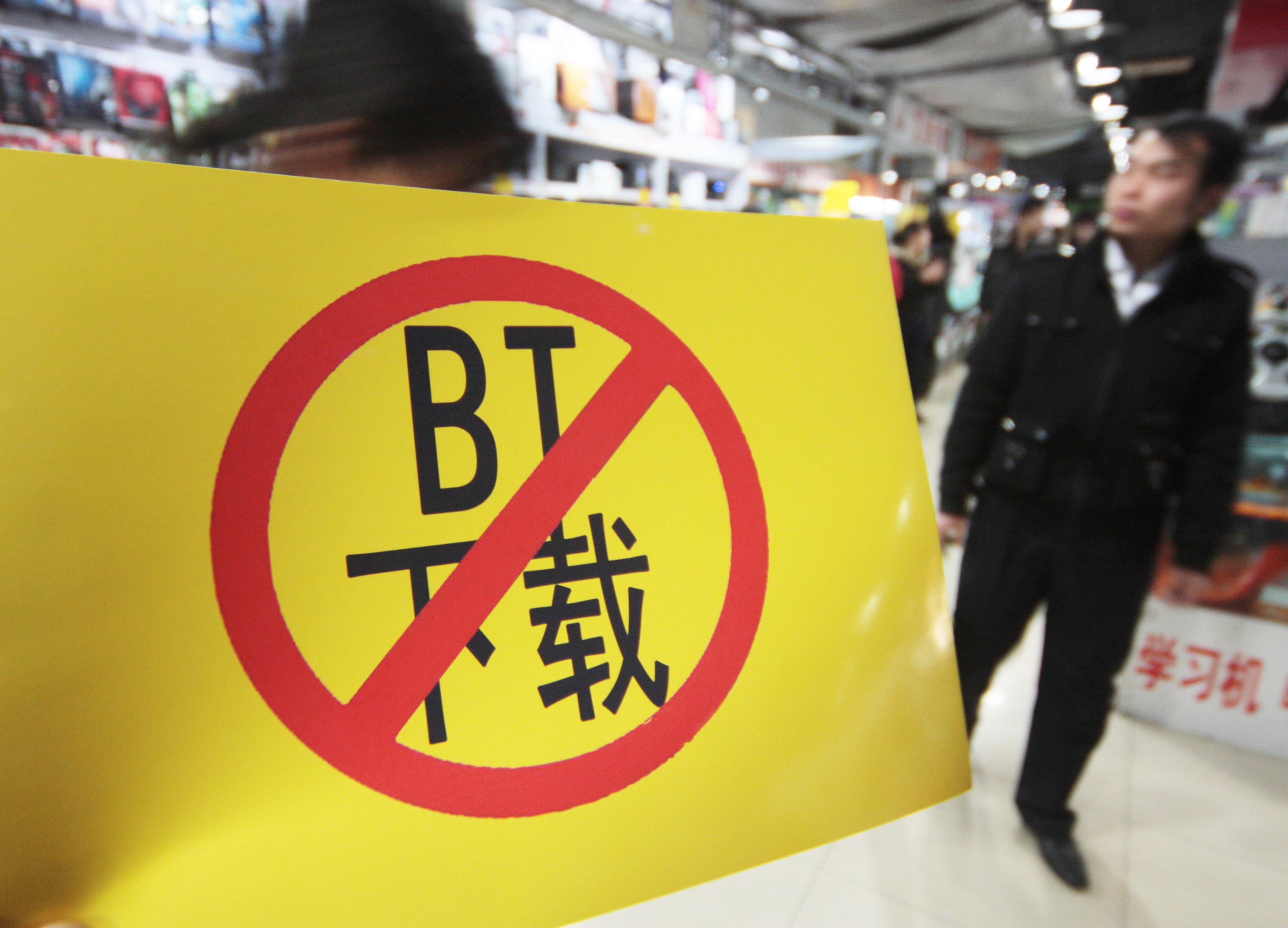 From the afternoon of December 4, 2009, BTChina, a BT movie & TV program downloading website, was found inaccessible and following it, more and more similar websites were shut down by the State Administration of Radio, Film and Television.
From the afternoon of December 4, 2009, BTChina, a BT movie & TV program downloading website, was found inaccessible and following it, more and more similar websites were shut down by the State Administration of Radio, Film and Television.
The BTChina was shut down because it failed to obtain the Audio-Visual Service Permit from the State Administration of Radio, Film and Television and its registration was canceled by the Ministry of Industry and Information Technology. In September 2009, the State Administration of Radio Film and Television issued a notice saying that all units and individuals must apply for this permit before engagement in the operation of movie and TV program websites. Since BTChina could not prove that the audio & video resources on it were obtained via proper channels, it could not apply for the Audio-Visual Service Permit from the State Administration of Radio, Film and Television.
Its shutdown showed that the government was tightening and reinforcing its regulation over audio-video programs on the Internet, which would reshape the competition landscape of video sharing websites. This was only the beginning. The regulated operation of the Internet industry required better regulation systems and measures.
-
Oct.20Qihoo 360 Technology Co. Ltd. (Qihoo 360) released the permanently free antivirus software on October 20
-
 The Security Center of Qihoo 360 made a high-profile release of the permanently free 360 antivirus software (version 1.0). It required no "activation code", a signature of paid antivirus software, heralding the abolishment of such a code for all antivirus software.
The Security Center of Qihoo 360 made a high-profile release of the permanently free 360 antivirus software (version 1.0). It required no "activation code", a signature of paid antivirus software, heralding the abolishment of such a code for all antivirus software.
The beta version of the 360 antivirus software was launched in July 2008, posing a threat to antivirus software companies at home and abroad including Rising, Kingsoft and Kaspersky. In September of the same year, Microsoft launched its free antivirus software Microsoft Security Essentials, a climax of the free antivirus movement.
The launch of the 360 antivirus software (version 1.0) was an attempt to explore a new profit-making mode in the antivirus market: attracting users with free basic services, building up the brand and influence and generating income with value-added services. As Zhou Hongyi, cofounder and CEO of the Qihoo 360, once remarked: the business mode of free services represented the future of business in the digital era. That's the ultimate motive for the launch of the free 360 antivirus software.
-
2009The Internet became a key public opinion platform in anti-corruption
-
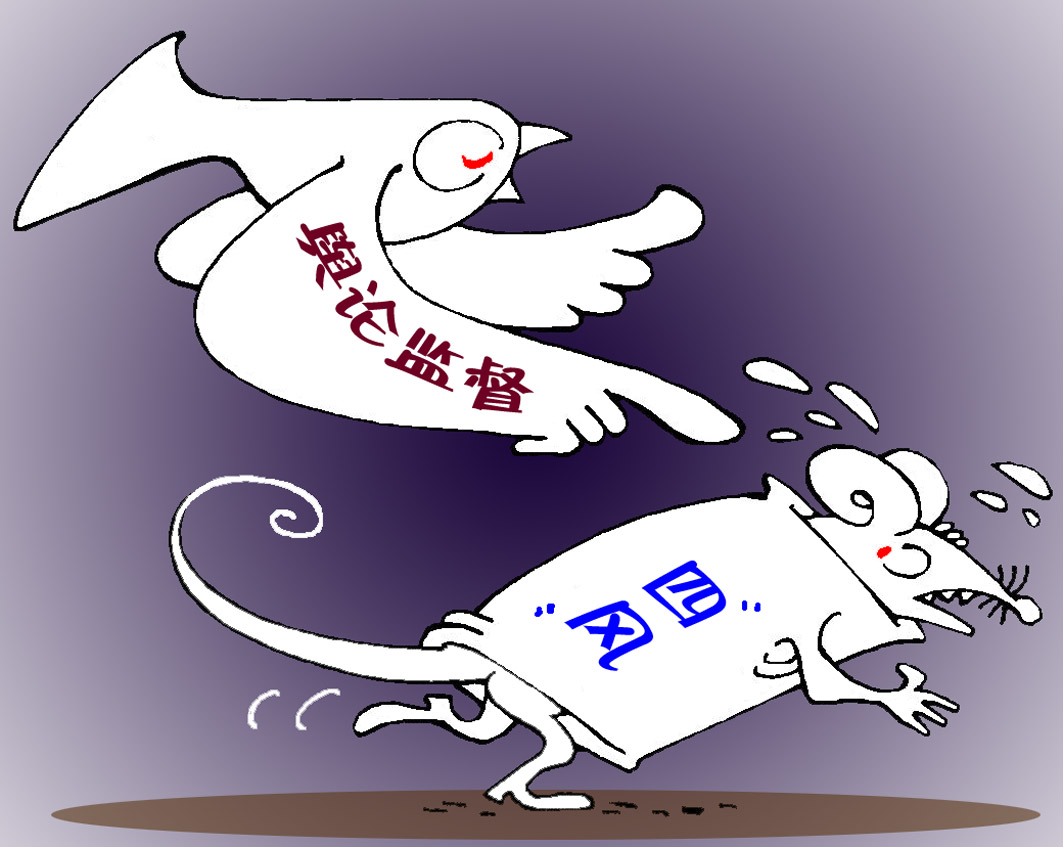 In 2009, in cases such as the "hide-and-seek game" (a young man was claimed to die in hide-and-seek with inmates in the detention center) case in Jingning, Yunnan Province, "Luxury Cigarettes" (Zhou Jiugeng, a director of district housing management department in Nanjing was found smoking luxury cigarettes and wearing luxury watches after photos of him in a meeting were uploaded to the Internet) case in Nanjing, Deng Yujiao (a female hotel staff who stabbed two town government officials out of self defense at work, causing one death) case in Badong, Hubei, the case of Lin Jiaxiang suspected of child molestation in Shenzhen, cross-province hunt-down in Lingbao, Henan, the drag racing case of Hu Bin in Hangzhou, and numerous other incidents were exposed by cyber media and recorded in the history, fully demonstrating the power of Internet as a watchdog. All of a sudden, all sorts of scandals and social injustice cases were exposed on the Internet, making it a public opinion platform that should not be underestimated. In the following years, the Internet continued to play the role of watchdog and started to become an important anti-corruption channel with the rise of more and more new media services.
In 2009, in cases such as the "hide-and-seek game" (a young man was claimed to die in hide-and-seek with inmates in the detention center) case in Jingning, Yunnan Province, "Luxury Cigarettes" (Zhou Jiugeng, a director of district housing management department in Nanjing was found smoking luxury cigarettes and wearing luxury watches after photos of him in a meeting were uploaded to the Internet) case in Nanjing, Deng Yujiao (a female hotel staff who stabbed two town government officials out of self defense at work, causing one death) case in Badong, Hubei, the case of Lin Jiaxiang suspected of child molestation in Shenzhen, cross-province hunt-down in Lingbao, Henan, the drag racing case of Hu Bin in Hangzhou, and numerous other incidents were exposed by cyber media and recorded in the history, fully demonstrating the power of Internet as a watchdog. All of a sudden, all sorts of scandals and social injustice cases were exposed on the Internet, making it a public opinion platform that should not be underestimated. In the following years, the Internet continued to play the role of watchdog and started to become an important anti-corruption channel with the rise of more and more new media services.
>>The Next Year<<The Previous Year2009Milestones
